International trips back on for Cereals Canada team
Advertisement
Hey there, time traveller!
This article was published 21/11/2022 (959 days ago), so information in it may no longer be current.
For the first time in three years, the team of experts at Cereals Canada were able to venture forth from their headquarters in Winnipeg, which includes the only high rise flour mill in the country, to take their expertise on a training mission to Africa.
In September, a team of technical experts travelled to Nairobi to facilitate a training workshop with millers and mill staff from six African countries. It was the first time since the onset of COVID that Cereals Canada has been able to resume any of the in-country training programs it offers.
The week-long workshop team, led by Cereals Canada Milling Manager Norbert Cabral with colleagues Karen Pitura, technical specialist food products (baking) and Kristina Pizza, analytical services manager, was held at the African Milling School. The professional training facility trains highly skilled millers for Africa and the Middle East.
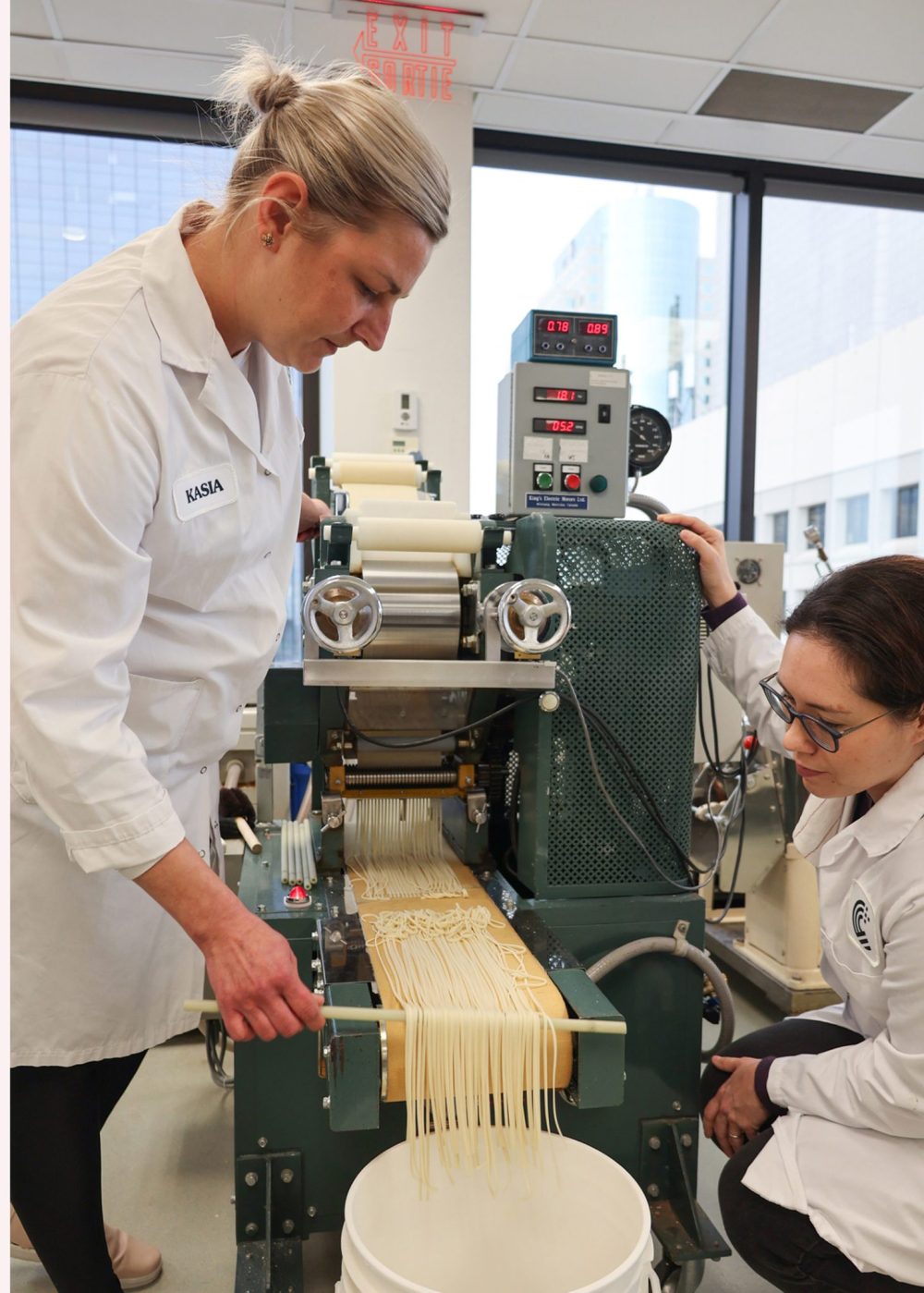
Cabral, who led several sessions and open discussions, focused on milling wheat and flour quality, said the workshop marked the return to in-country programming and hands-on technical training, which had been suspended since the beginning of the pandemic.
“It was an exciting week, both for our team and the 14 millers and quality assurance managers who took part.”
Back home in Winnipeg, the trio of experts are part of a research team working in Canada’s only high-rise mill and an equally lofty pilot bakery and noodle production facility.
Cereals Canada has taken “vertical integration” in agriculture to a whole new level in pilot-sized production facilities, which mimic milling, baking and noodle making with the goal of educating customers world-wide about the quality of Canadian wheat.
The pilot mill was the first facility to be established at Cereals Canada in 1972 and has been upgraded many times over the years.
Today, manager Cabral and staff have three different sizes of mills to work with. This gives the research facility the opportunity to deal with small breeding samples as well as larger quantities of wheat for research and the in-house bakery and noodle factory, as well as the pasta plant on the first floor.
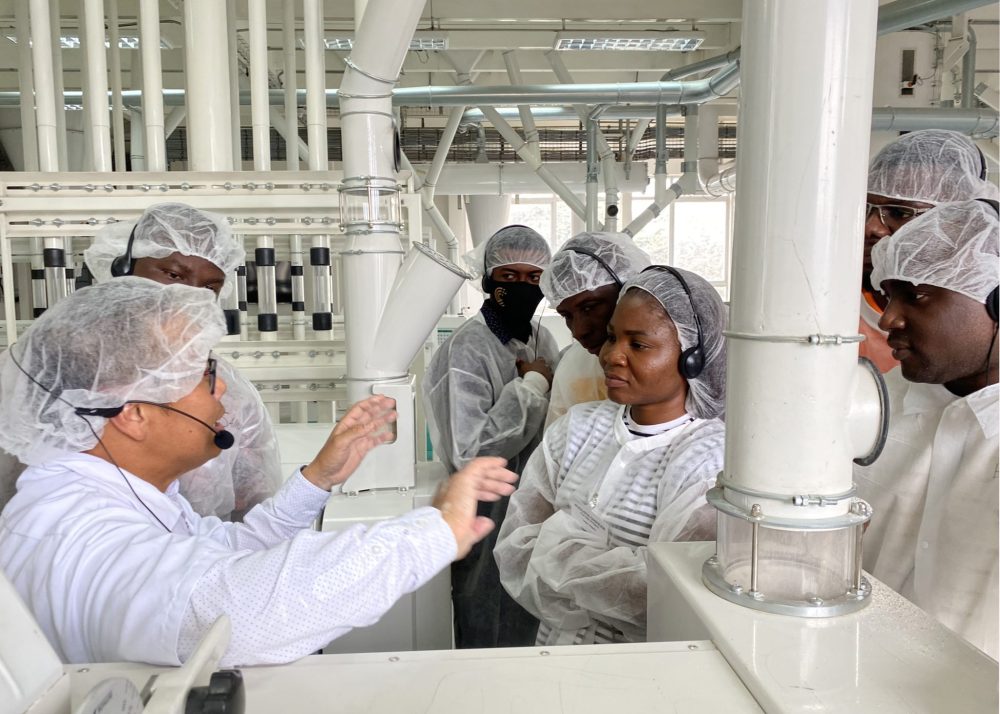
The milling facility at Cereals Canada is the only fully functioning flour mill located on the 11th floor of a building. A pneumatic system is used to bring grain up from ground floor to the mill which has the capacity of milling 10 tonnes of grain in a 24 hour period.
It has the same type of milling equipment you would find in in large flour mills throughout the world, but on a much smaller scale. For example, a mid-sized commercial mill would produce 200 tonnes of flour a day, while for a large mill, the number would be 2,000 tonnes.
The Cereals Canada mill focuses on the commercial application of Canadian wheat flour, providing an understanding of the milling qualities of different wheat classes, as well as specialty grains. The pilot mill produces flour just like the kind consumers would find in the grocery aisle at their local supermarket.
Rebecca Hadfield, content writer and digital communications coordinator, gave The Carillon a tour of the facilities the last week in October. Hadfield claims the bakery, which uses flour the mill provides, makes the best white pan bread she has ever tasted. She admits a few occasional samples is a perk of her job with Cereals Canada. Visiting the bakery and noodle making facility, with that fabulous aroma of freshly baked bread, makes for a very enjoyable tour. After all, a virtual tour can remind no-one of grandma’s kitchen.
For the staff, the bakery provides not only the opportunity to produce hundreds of loaves of perfect pan bread but to conduct valuable research at the same time.
Throughout the year, Cereals Canada tests the quality of Canadian wheat to determine how it will perform in mills and bakeries around the world. This requires the latest equipment and technology, like the C-Cell baking quality analyzer.
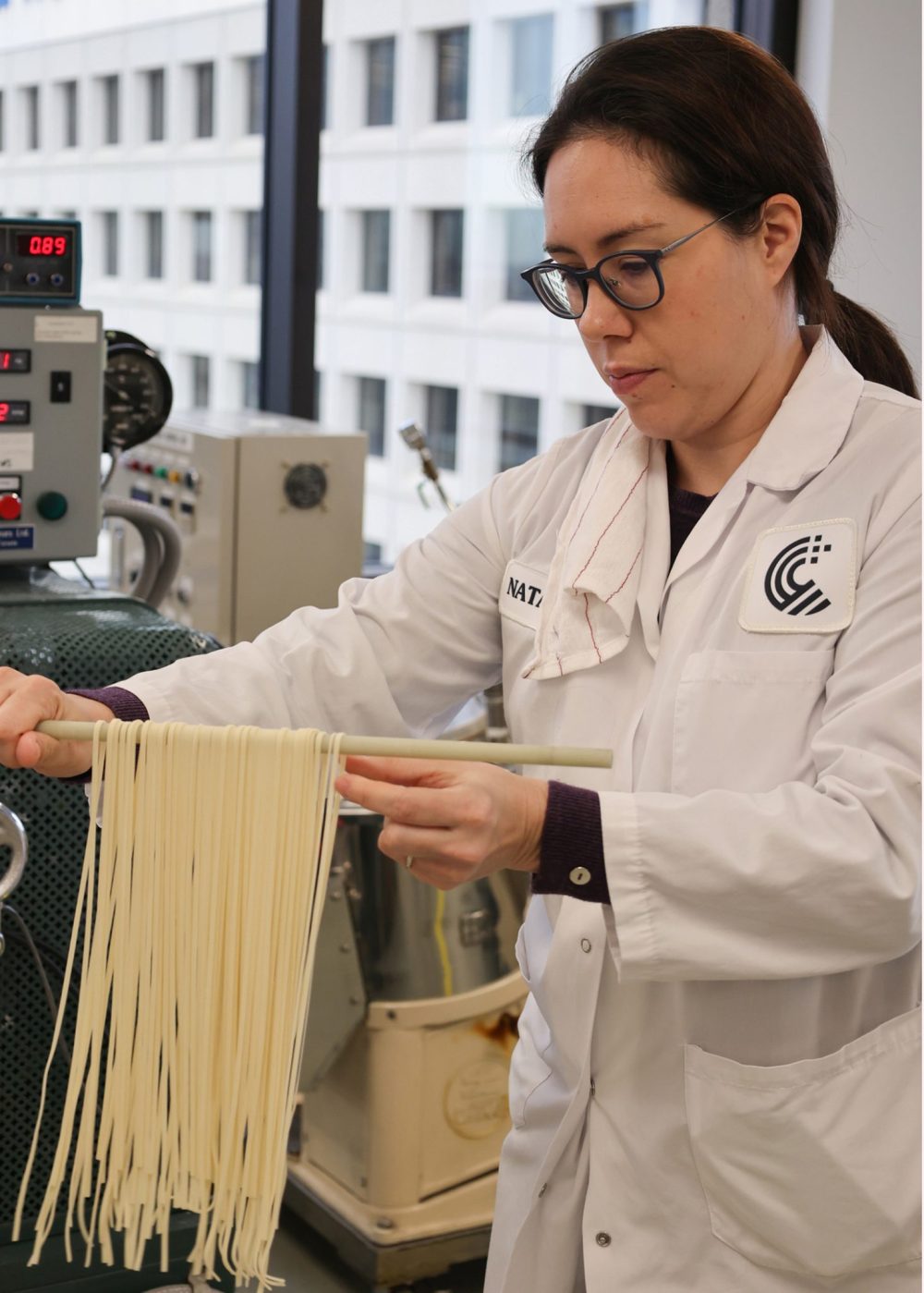
The highly specialized instrument compiles images and data to provide information about the quality of baked products, such as breads, buns, pastries and cakes.
Cereals Canada experts use that data to provide customers with information that can help in selecting flour for their end-products. Canadian wheat provides excellent cell structure, when used alone or in wheat blends for baked end-products, because of its high quality.
And just around the corner on the same floor, the very latest in noodle making equipment, manufactured in Japan, affords staff the same opportunity for testing and research of Canadian wheat for noodles.
Noodles and pasta are staple foods around the world. Working with Canadian wheat and durum flour on pilot-scale equipment, Cereal Canada’s Asian end-product specialists create commercial quality instant noodles and pasta.
Renowned for its quality, Canadian Western Amber Durum is in demand around the world. Over the last five years, over 23 million tonnes of Canadian durum were exported to 49 countries, including Morocco, Algeria, Italy, the United States and Japan.
According to Cereals Canada technical specialist Kasia McMillin, “CWAD provides the bright beautiful, bright yellow colour that pasta makers and pasta lovers look for.”
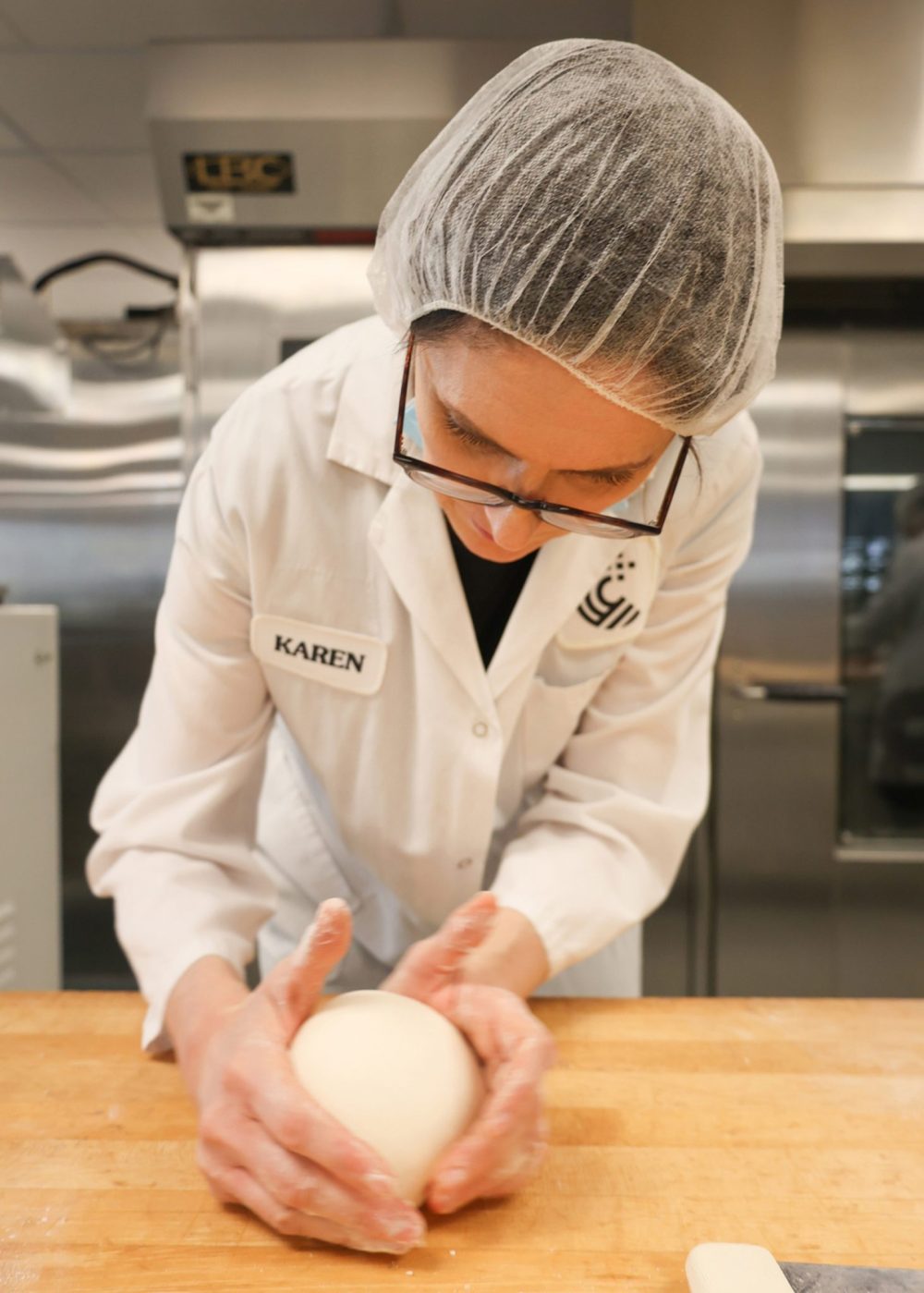
This day, McMillin and Natalie Middlestead, another technologist in Asian end-products and pasta, were making white salted noodles, while testing Canadian Western Red Spring Wheat from this year’s crop. The quality of the wheat is being tested for its ability to produce the white creamy noodle the Asian market demands, Middlestead explains.
Fresh alkaline noodles, which are more yellow, are what Japan wants. Cereals Canada, for research, is using mostly Japanese Ramen noodle-making equipment of a smaller size than would be found in commercial settings.
Equipment to make Ramen noodles stretches the length of the 11th floor building. The challenge of determining a way to move grain up 11 floors to the Cereal Canada mill was even more daunting, when it came to installing the Japanese manufactured noodle making equipment.
The windows of the building had to be removed to bring in the equipment, Hadfield explains.
Ramen noodles are rolled out, cut, then steamed and then deep fried to take out the water to make them shelf-stable for packaging in the dry packs you buy in the grocery store, take home and cook in three minutes.
Both the bakery and the noodle factory were built at the same time, and the Ramen equipment was added a bit later.
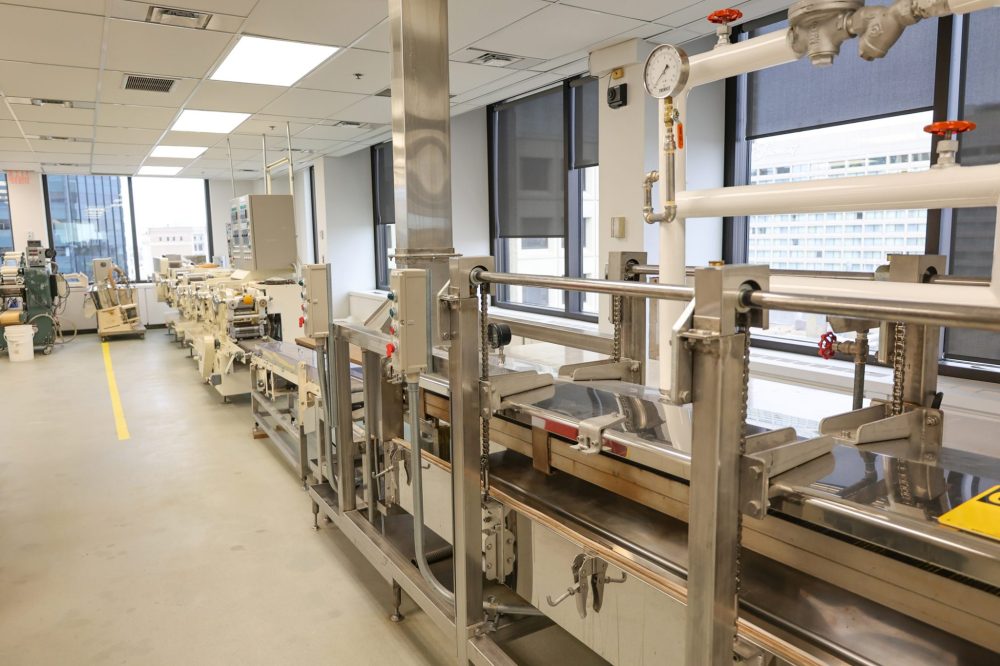
Since its inception in 1972, Cereals Canada has been the number one promoter of Canadian cereals through technical support, market access, promotion, and market development to grow the demand for Canadian cereals around the world.
Over the past 50 years, more than 51,000 people from over 55 countries have attended courses, webinars, training programs and in-country seminars hosted by Cereals Canada in Winnipeg, and around the world.
